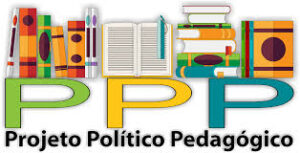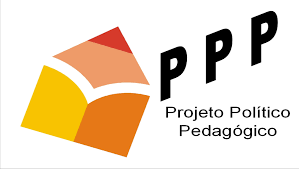Projeto Político Pedagógico (PPP) is a crucial document in the Brazilian educational context, shaping the direction and practices of educational institutions. Let’s explore the significance of PPP and its impact on education.
Introduction to Projeto Político Pedagógico
Definition and Purpose
Projeto Político Pedagógico, translated as Political Pedagogical Project, is a document that outlines the educational principles, goals, and strategies of a school or educational institution. It serves as a guiding framework for educational practices and decision-making processes.
Importance in Education
PPP plays a pivotal role in shaping the educational vision and mission of an institution, aligning its practices with educational policies and societal needs. It provides a coherent and comprehensive roadmap for promoting quality education and fostering holistic development among students.
Components of Projeto Político Pedagógico
Educational Goals and Objectives
The PPP establishes clear educational goals and objectives that reflect the aspirations and values of the school community. These goals guide curriculum development, teaching methodologies, and assessment practices, ensuring a student-centered approach to education.
Curriculum Design and Implementation
PPP outlines the curriculum framework, including subject areas, learning outcomes, and instructional approaches. It emphasizes interdisciplinary connections, project-based learning, and experiential activities to enhance student engagement and learning outcomes.
Pedagogical Strategies
PPP delineates pedagogical strategies and methodologies tailored to the diverse needs and interests of students. It promotes innovative teaching practices, collaborative learning environments, and inclusive education approaches to cater to the individual strengths and challenges of learners.
Development Process of Projeto Político Pedagógico
Collaborative Approach
PPP development involves collaboration among school stakeholders, including teachers, administrators, parents, and community members. It fosters participatory decision-making processes and collective ownership of the educational project, enhancing stakeholder engagement and commitment.
Stakeholder Involvement
PPP ensures the active involvement of stakeholders in shaping the educational vision and goals of the institution. It encourages open communication, feedback mechanisms, and partnerships with external organizations to enrich the educational experience and address community needs.
Implementation Challenges and Solutions

Resource Allocation
One of the key challenges in PPP implementation is resource allocation, including funding, infrastructure, and human resources. Schools may face budget constraints and logistical hurdles in implementing innovative educational practices outlined in the PPP.
Teacher Training and Support
Effective implementation of PPP requires ongoing teacher training and professional development initiatives. Schools need to invest in capacity-building programs, mentoring opportunities, and supportive frameworks to empower educators and enhance their pedagogical skills.
Impact and Evaluation of Projeto Político Pedagógico
Student Outcomes
PPP aims to improve student outcomes, including academic achievement, social-emotional development, and citizenship skills. It fosters a supportive learning environment that promotes critical thinking, creativity, and lifelong learning among students.
Continuous Improvement
PPP emphasizes the importance of continuous evaluation and reflection to assess the effectiveness of educational practices and identify areas for improvement. Schools conduct periodic reviews, gather feedback from stakeholders, and adjust their strategies to ensure the alignment of PPP goals with educational outcomes.
Conclusion
Projeto Político Pedagógico (PPP) serves as a cornerstone of educational planning and innovation, shaping the educational landscape and fostering student success. By embracing collaborative approaches, stakeholder involvement, and continuous improvement strategies, PPP enables schools to provide quality education that meets the needs of diverse learners.
FAQs
- What is Projeto Político Pedagógico (PPP)?
- Ans: PPP is a document that outlines the educational principles, goals, and strategies of a school or educational institution in Brazil.
- Why is PPP important in education?
- Ans: PPP provides a guiding framework for educational practices, ensuring alignment with educational policies and societal needs, and promoting holistic development among students.
- What are the components of PPP?
- Ans: Components include educational goals and objectives, curriculum design and implementation, and pedagogical strategies tailored to the diverse needs of students.
- How is PPP developed?
- Ans: PPP development involves a collaborative approach with stakeholders, including teachers, administrators, parents, and community members, to ensure collective ownership and commitment to the educational project.
- What challenges are associated with PPP implementation?
- Ans: Challenges may include resource allocation, teacher training, and support, which require careful planning and investment to overcome and ensure the effective implementation of PPP.

